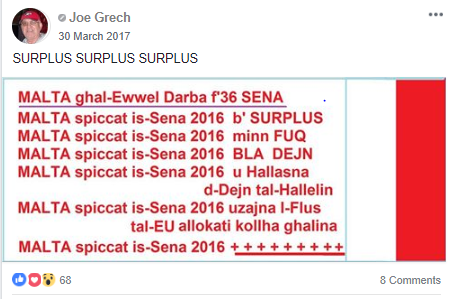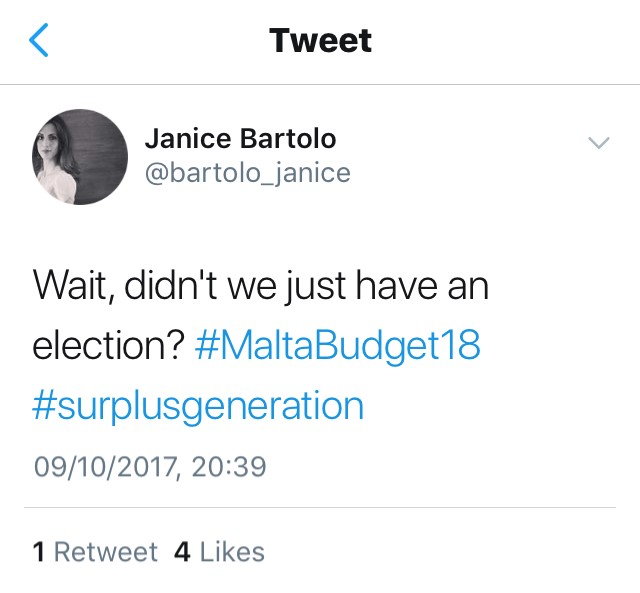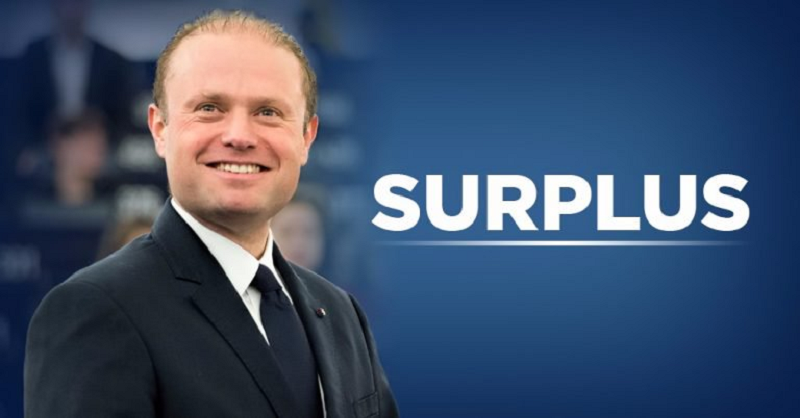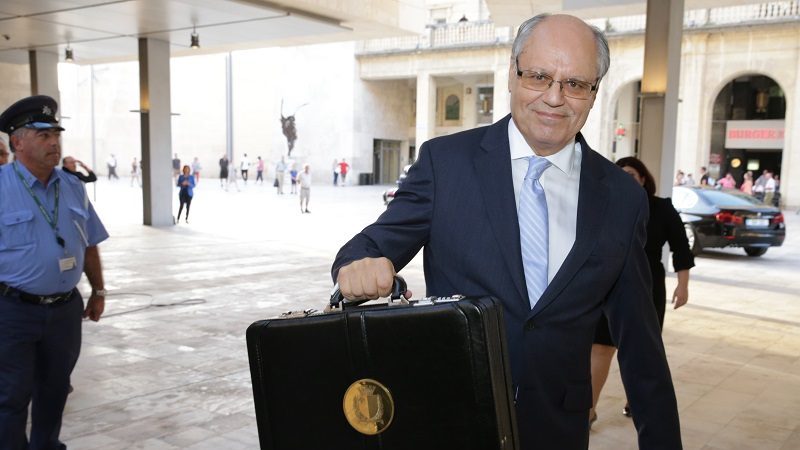It has become impossible to talk about the economy without referring to the ‘surplus,’ the result of a driven campaign to laud Joseph Muscat’s government for its economic success. Yet a government surplus is not an “economic miracle” – it means that taxes imposed on the public exceed money spent on the public. So what, exactly, is the country celebrating?
The government celebrates budget surpluses as though it is managing a household budget. Countries are not households, and the government framing a surplus in this way only serves to mislead citizens on how their money is raised and used. The Opposition contributes to the surplus deception when it debates surpluses in the same terms.
When the government’s consolidated fund registered a surplus of €8.9m in 2016, Prime Minister Joseph Muscat called a press conference where he described the surplus as an “economic miracle”.
The network of secret pro-Muscat Facebook groups drove the message, with countless shouts of “surplus”, surplus memes and comparisons of previous deficit-running administrations to “thieves”.

Memes and posts refer to Muscat lifting the people “out of poverty,” despite the fact that Malta sailed through an economic recession and the Libya crisis without austerity measures under the Lawrence Gonzi administration.
When the government’s 2017 surplus of €182.6m was published in March 2018, Muscat and the Labour Party called it a “record”, and spread the news of “L-akbar surplus fl-istorja ta’ pajjiżna” (the biggest surplus in our country’s history) across Party-owned media and its online groups.

Janice Bartolo, the Justice Minister’s girlfriend and One News reporter who was then given a senior position at the tourism ministry, was one of those who pushed the narrative forward.
Dominic Grech, Chair of Labour think-tank Fondazzjoni IDEAT and Labour Party Administrative Board Member, attributed the surplus to Muscat personally, describing it as evidence of Labour being “the best of the best”.
The Internet remains awash with memes depicting Muscat smiling alongside the word, in caps, “surplus.”

The reasoning that a surplus is always a good thing sounds so much like straightforward common sense that it is easy to forget the disinformation-powered consensus that formed it.
The Labour Party has repeated its surplus mantra with rigid message discipline. It has a history of it, with former Labour leader and Prime Minister Dom Mintoff having been “allergic” to deficits.
Deficits are put forward as indicative of weak governance and economic failure, the messaging drills on and on, and so citizens must be thankful for Muscat and the prosperity he has brought Malta that is so evident in the government surplus.
After years of Labour’s messaging, the surplus deception, a government surplus masquerading as an ‘economic miracle’, has been internalised by all politicians, the media and the public.

When Nationalist Party-leader Adrian Delia is taunted with calls of “L-akbar surplus” (the biggest surplus), he answers, “Where is this surplus?” – his counter-argument being that the surplus is not being used for the people’s benefit.
Newspapers unquestioningly report the “record surplus”.
Consider this:
- The government is not a household.
When a government runs a surplus, the public must compensate by either spending its savings or increasing its debt. A government surplus means that taxes imposed on the public exceed money spent on the public.
This is a net flow of money from the public to the government. In fact, while the government celebrated its 2017 surplus of €182.6m on 31 March, its only notable expenditure was announced that day – a €5m (2.7% of surplus) donation to cancer charity Puttinu Cares.
- A net flow of money from the public to the government is possible with asset sales in the short term.
While taxes imposed on the public cannot exceed money spent on the public in the long term, the government can raise revenue through selling State assets like airlines, hospitals, land, buildings and passports.
Malta has seen all of this happen since 2013, but it is a short term strategy – the country will run out of State assets.
This is also politically problematic as it breaks the accountability link between a government and its electorate (money without tax), although it is still clearly a transfer of wealth from the public to the government.
The surplus of 2016, one of two years in which the post-2013 Labour government ran a surplus, would have been a sizable deficit were it not for revenues from passport sales totalling €163.5m.
- A net flow of money from the public to the government is not possible in the long term without running down people’s savings and running up private debt to compensate.
Unless the government can keep raising revenue by selling State assets, which is theoretically possible with passport sales, then at some point the public will run out of savings and run into unsustainable levels of private debt.
In the two years in which the government ran a surplus, private debt has increased (after declining for five years). Malta’s private debt as percentage of GDP, despite fast GDP growth, rose from 122% to 125% between 2015 and 2016.
It is for this reason that surpluses are difficult to achieve in the long run, besides being undesirable.

- Running surpluses is a sensible thing to do when interest rates on government debt are high, which they are not.
It is in periods of low interest rates, when borrowing is cheap, that the government should be spending more than raising money – that is, running deficits. Surpluses are for periods when borrowing is expensive.
The interest rate on government debt continues to drop, having already fallen from 4.3% in 2014 to 3.6% in 2017.
It is not credible that Muscat, celebrated as an economist in the run up to the 2013 elections, or any of his advisors and Finance Minister, do not understand the economics of investment.
In continuing to drive Labour’s age-old surplus mantra, the government is misleading the public on how it is taxed and treated, distorting the political debate on the issue to everyone’s disadvantage except their own.
This is the fifth episode in The Shift News Disinformation Watch.












